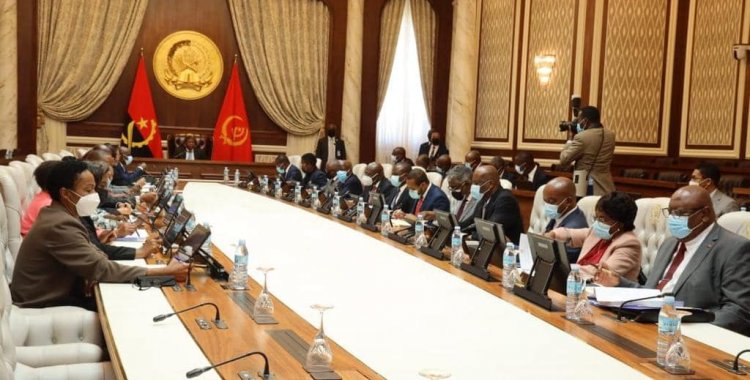The document, which is now going to the National Assembly for discussion and approval, was approved at the extraordinary session of the Council of Ministers, held this Tuesday, guided by the President, João Lourenço.
At the end of the meeting, the Minister of Justice and Human Rights, Marcy Lopes, told the press that the proposed law covers crimes committed between 12 November 2015 and 11 November 2022.
Marcy Lopes indicated that the proposal presented by the holder of the executive power aims to amnesty all common crimes with a prison sentence of up to ten years, committed by national or foreign citizens, with some exceptions in the types of crimes, including embezzlement and money laundering.
"As is known, in 2015, the last amnesty law was approved. This is the reason why the temporal scope of this proposed law, which is now submitted to the National Assembly, has this temporal spectrum", underlined the minister.
The minister of Justice and Human Rights stressed that the legal diploma also proposes that military crimes punishable with a prison sentence of up to ten years be granted amnesty, with the exception of intentional crimes, committed with violence and which resulted in death.
"A generic pardon is also provided for the perpetrators of crimes that have not been covered by the amnesty and this pardon is on the order of a quarter of the penalty that was applied to these citizens", he stressed.
According to Marcy Lopes, the proposal does not cover intentional crimes committed with violence or threats to people, which resulted in death or when a firearm has been used, more precisely, violent crimes.
Crimes of trafficking in narcotics and psychotropic substances, which are not of lesser gravity, that is, "all crimes that include drug trafficking and that have a greater scope, will not be amnestied", explained the minister.
The official stressed that the crimes of trafficking in persons or sex trafficking in persons, the crimes of trafficking in weapons and war ammunition, sexual crimes with penetration, sexual crimes against minors or those committed by means of sexual aggression and the crimes of promoting and aiding illegal immigration.
The list of excluded crimes also includes embezzlement, money laundering, environmental crimes, those resulting in vandalism, destruction or deprivation of public goods.
Crimes against the security of the State, which do not allow parole under the terms of the law, those of incitement to public disorder, popular uprising and coups d'état and crimes that cannot be expired under the terms of the Constitution and the law are also not amnestied.
"Likewise, property crimes whose damages have not been repaired are not covered or covered by this proposed amnesty law," he added.
According to the minister, the draft law does not extinguish civil or criminal liability arising from the amnesty facts and the deadline for filing an action for compensation, for losses and damages, in the competent court, which must be counted from the entry into force of the proposed law.
Marcy Lopes highlighted that the assets that have been seized in criminal proceedings that are now amnestied are declared forfeited in favor of the State.
"The exception is that, if these assets are titled or owned by a third party, these assets are not lost in favor of the State and must be returned to their normal and common owner", he clarified.







